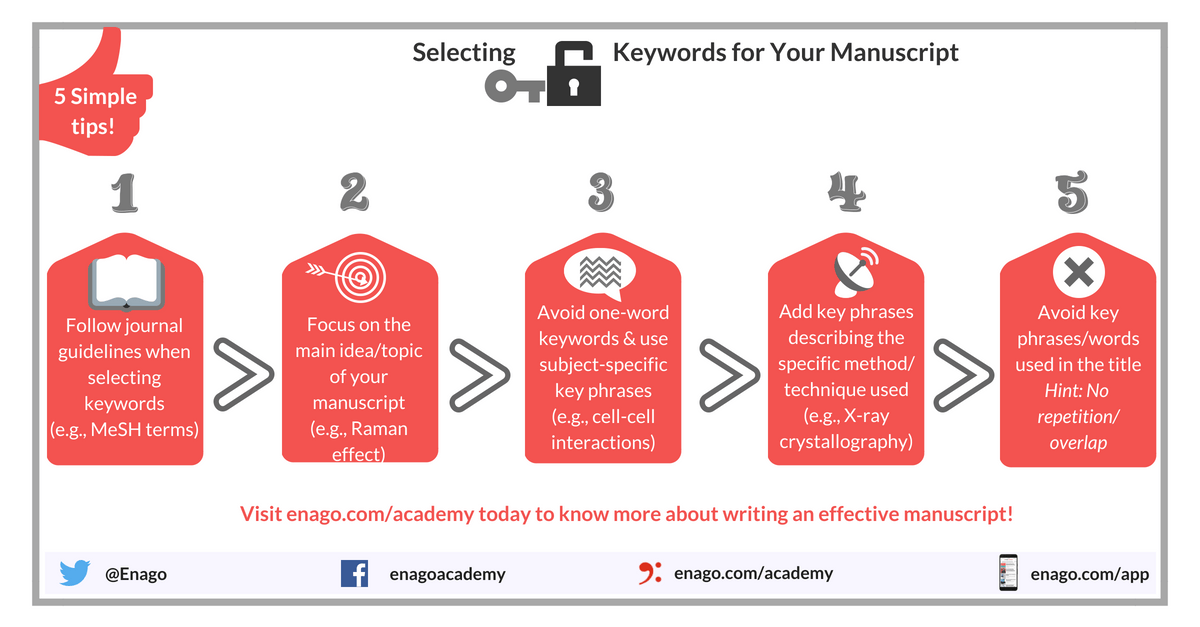How to Find Keywords Effectively: Tools at a Glance

Academic research was once the domain of librarians in universities. Their expertise and ability to make analytical connections among and within fields of study played a critical role in the research process. While their expertise is still useful to researchers, keyword search results have replaced some of their functionality. Researchers can now find much of what they are looking for by plugging keywords into a search engine.
Keyword search results help researchers to find articles that are relevant to their own research interest. These results also let researchers know what other scientists are working on similar projects and what journals may accept their submissions. Conversely, authors will need to select appropriate keywords or phrases (“long tail keywords” – usually 3 words) to use in their work in order to increase readership.
Keyword Research Tools
First-time authors or those who simply prefer to employ technology can choose from a variety of keyword planners and other tools that help to analyze a document and select the keywords.
Medical Subject Headings (MeSH)
- MeSH on Demand – automatically identifies relevant MeSH terms from text using Natural Language Processing and the National Library of Medicine’s Medical Text Indexer
- The MeSH Browser – allows users to search directly for MeSH terms and conduct text-word searches of the Annotation and Scope Note fields of records
- Finds the keywords that are most pertinent to your field of study/area of interest
- Shows trends in keyword searches
- Shows how often a particular search-term is entered relative to the total search-volume across various regions of the world, and in various languages
- Generates long-tail keyword suggestions based on Google trends
- Method of searching rather than a tool, per se
- Allows searchers to refine their search to specific pairings of words with the use of quotation marks and capitalization of “operators”
- Uses logical relationships between search term
All of these tools are based upon continuously changing and improving algorithms and claim to be reliable and effective. Add the expertise of a seasoned research librarian and authors can feel secure in their keyword selection process.
How to Select Keywords
Selecting keywords for research articles is not difficult, but it does take some strategizing. The most important component of the article is the title – “The search engine assumes that the title contains all of the important words that define the topic of the piece, and thus gives higher weightage to the words appearing there.” Therefore, the words of the title represent the main concepts of the article. In addition, the title should be clearly stated.
Keyword usage in the body of the article or abstract should follow these guidelines:
- Keywords should represent key concepts
- They should be descriptive
- Keywords should reflect a collective understanding of the topic
- Limit keywords/phrases to 3-4
- Use synonyms of keywords throughout
- Reuse keywords and phrases throughout article or abstract
The best keywords are proper names, specific procedures or techniques, outcome areas, capitalized events and eras, titles of books or articles, and definitions. Once keywords and phrases have been determined, the author will need to incorporate them into a well-written piece. Although it is useful to repeat keywords and phrases throughout the article, the repetition should not impair the article’s readability, which is paramount.
Another element to consider, potentially before any thought has been given to keywords and phrases, is the requirements of journal(s) to which the article will be submitted. Journals often have specific policies regarding submissions, including the usage of keywords. Online manuscript submission forms will generally have an area for keywords.

Online Visibility Impacts Citations
Another important aspect of keyword selection is its impact on citations. An article that is easy to find is more likely to be cited. Within the realm of citations and increasing online visibility, Google Scholar is a tool that allows users to search for digital or physical copies of articles. Results appear in order of the author’s ranking, the number of linked references, and their relevance to other scholarly literature. Furthermore, appearance of results are also based on ranking of the publication in which the article appears. This tool is useful when investigating an article’s position among others of similar content. Have you used the tools mentioned in this article for identifying good keywords? Do you have any suggestions for your peers? Please share your thoughts in the comments section below.






This site was… how do you say it? Relevant!! Finally
I have found something which helped me. Thanks a
lot!
Hey I am so thrilled I found your blog page, I really found you by accident, while
I was browsing on Digg for something else, Anyhow I am here now and would just like to say thanks for a remarkable post and a all round exciting blog (I also love the theme/design), I don’t
have time to read it all at the moment but I have bookmarked it
and also added your RSS feeds, so when I have time I will be back
to read much more, Please do keep up the superb job.
Thank you for sharing your info. I truly appreciate your efforts and I will be waiting for your next
write ups thank you once again.
Attractive section of content. I just stumbled upon your web
site and in accession capital to assert that I acquire actually enjoyed account your blog posts.
Any way I’ll be subscribing to your feeds and even I achievement you access consistently fast.
Great job on this post! The content is exceptionally informative and well-researched, providing useful perspectives
into the subject at hand. The writing style is compelling and moves seamlessly,
making it an pleasurable read. I appreciate the effort put into
conveying complex ideas in a concise and manner. This
write-up has definitely expanded my awareness on the topic.
Kudos to the writer for delivering such a top-notch piece!